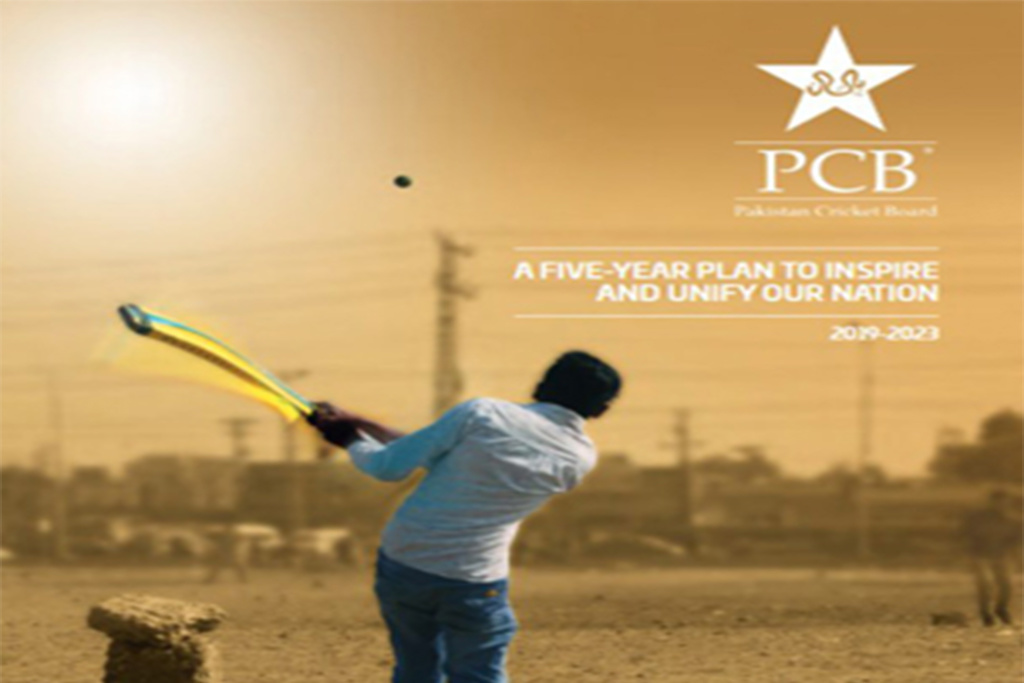PCB announces ambitious 5-year strategic development plan
The incumbent management of the Pakistan Cricket Board (PCB) headed by Ehsan Mani announced an ambitious development plan for five years (2019-2023).

With no significant achievement during the last 20 months after being elected for a three-year term in 2018, the incumbent management of the Pakistan Cricket Board (PCB) headed by Ehsan Mani announced an ambitious development plan for five years (2019-2023).
Titled ‘Five-Year Plan to Inspire and Unify Our Nation’, the document lays down strategic and corporate objectives, sets a course of action for the progress and enhancement of the national men’s, women’s and age-group teams and presents a pathway and structure for grassroots development.
Underpinning the objectives will be a tracking system that will ensure that progress is monitored on a monthly basis throughout the duration of the plan.
The plan contains set six targets, with no clarity where Pakistan’s national team will stand in world rankings in the three formats of the game or how many new stadiums will be built during this period.
Interestingly, the plan was approved by the current Board of Governors, whose most members are representatives of now-defunct regional and departmental institutions, who were elected under the previous PCB constitution.
However in 2019 when the PCB introduced its new constitution, it ended the regional and department-based domestic structure, rendering thousands of players across the country jobless, mainly due to abolishing departmental cricket.
In the new domestic structure, the PCB introduced a formula of six provincial teams that replaced 16 regional and approximately 30 departmental teams that had been featuring in both first-class and Grade-II cricket.
The old domestic structure of the sport, it is to be recalled, enabled thousands of aspiring young cricketers across Pakistan to earn monthly salaries for decades.
Surprisingly, however, the representatives of regions and departments are still working as members of BoG while their teams are no more part of the domestic cricket. Almost a year has passed but the new domestic structure — which will have a new BoG — has not been made functional. It is mainly because the new constitution requires the PCB to get six provincial and around 90 city cricket associations registered under the Company Act.
But no announcement from the PCB about the registration in this regard has been made as yet. This standstill and the uncertain situation have resulted in no cricket at district, city or club level for the second year running.
Though due to Covid-19 pandemic that brought entire Pakistan and the rest of the world to an unprecedented halt the country’s domestic cricket is also currently suspended, non-existence of province- and city-level associations are raising questions over the working of the PCB.
As a result of abolishing regional cricket in 2019 around 250 ground staff including groundsmen and curators — besides thousands of cricketers — lost their jobs.
The press release regarding the five-year plan issued by the PCB on Monday explicitly shows the slow pace at which the present Board is functioning.
“Unveiling the strategy, PCB chief executive Wasim Khan said: ‘We developed the five-year plan in 2019 and awaited sign-off by the Board of Governors. We are delighted that we received official sign-off in February this year and are now in a position to formally announce it’,” read the press release.
Moreover, the PCB claims some delivery against key priorities for the 2019-2023 plan began last year, even before getting the BoG approval, in February this year.
“It was highly important that we develop a clear, exciting and achievable roadmap that provided clarity on our direction of travel, not only for all PCB staff but also the fans and its stakeholders,” said the PCB in the press release.
According to the said press release, the six salient features of the strategy include:
Sustainable Corporate Governance — will be underpinned by timely and effective planning and allocation of resources.
Deliver world-class international teams — ongoing investment into a merit-based domestic system and a focus on excellence in High-Performance Centres. will help transform our international teams into consistent top-class performers.
Grassroots and pathways framework — providing opportunities and supporting the seamless transition of young and aspiring cricketers into the mainstream game.
Inspire generations through our women’s game — we will maintain a key focus on diversity and invest in our future cricketers to develop cricket champions across the nation.
Grow and diversify commercial revenue streams — we will set strategic, innovative and targeted commercial plans that will support the sustainability of the PCB and the cricket associations.
Enhance the global image of Pakistan — we will showcase Pakistan through the promotion of the HBL Pakistan Super League, sustainable home international cricket and by maintaining an ongoing and close dialogue with other cricket boards around the world.
Moreover, the PCB said: “Each of the aforementioned strategies is divided into clear objectives and tactics. A senior manager will own one of the six strategic priorities and will be responsible for its execution, while a robust monitoring system with clear delivery timelines will track monthly progress.
“The PCB has the potential and drive to be amongst the very top cricket boards in the world. This aspiration, with a commitment to action, will drive us on so that we can become consistently successful on the field and highly competent off it. It is exciting to think where we can be as a cricketing nation when we deliver this; over the last 12 months significant progress has already been made from where we started.”











_mq.jpg)